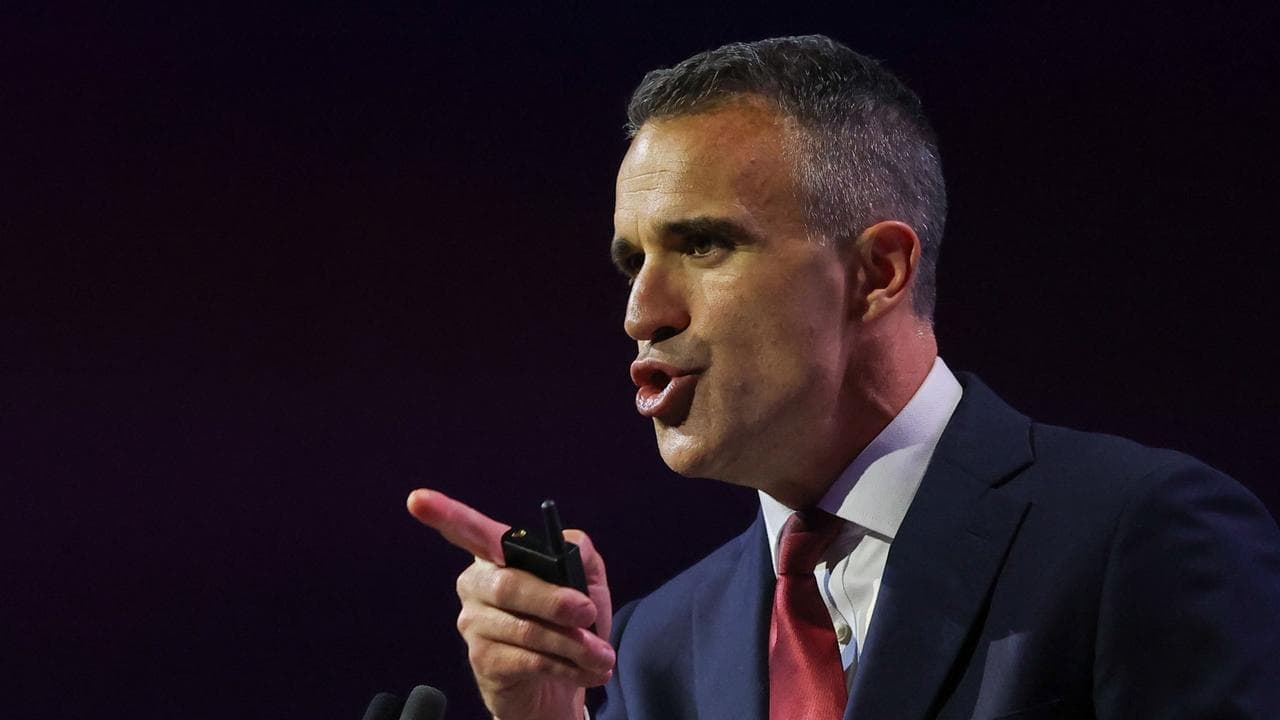WHAT WAS CLAIMED
Brain clots are 112,000% more likely after COVID-19 vaccine than a flu jab.
OUR VERDICT
Misleading. Unverified, self-reported data do not establish a causal link between vaccines and adverse events.
AAP FACTCHECK - A misleading claim that COVID-19 vaccines are 112,000 per cent more likely to cause brain clots than flu vaccines is spreading on social media.
Experts say the claim is based on unverified self-reports that do not establish a causal link between COVID-19 jabs and adverse health events.
The claim appears in Facebook posts featuring a screenshot of a headline that reads: "COVID Vaccines Pose 112,000% Greater Risk of Brain Clots, Strokes Than Flu."
"Some Doctors took a hard look at Facts and Actual numbers..," the post's caption reads.

The headline comes from an article published on Substack that cited a paper co-authored by Peter McCullogh, a US cardiologist whose vaccine claims have been debunked multiple times by AAP FactCheck.
The paper said the percentage figure was a proportional reporting ratio (PRR), comparing the frequency of an adverse event reported for one vaccine to another jab.
The authors wrote that the PRR for "cerebral thromboembolism" events, or brain clots, after COVID-19 vaccines when compared to flu vaccines was 1120 (page 623).
The paper calculated the figure using data from the US Vaccine Adverse Event Reporting System (VAERS), where individuals can self-report adverse events after receiving jabs.
However, experts said VAERS data is not verified and does not establish a causal link between vaccines and adverse events.
Assistant Professor Stephen Kissler, a computer scientist studying epidemiology at the University of Colorado Boulder, said that VAERS data lacked a baseline group, such as an unvaccinated control group, for comparisons.
He said a spike in reports after COVID vaccines didn't necessarily mean actual adverse events were any higher than for previous vaccines.
VAERS reporting rates were extremely low before the pandemic, he said, and people were much more likely to report an adverse event after receiving COVID vaccines because they were new, regardless of causation.

Helen Petousis-Harris, a vaccinology expert at the University of Auckland, said VAERS had explicitly warned against using its data to assess the causation of an adverse event or to calculate actual incidence rates.
She said that was due to the lack of a true denominator, underreporting, reporting biases and the unverified nature of the reports.
"VAERS is like a community suggestion box at a busy store; anyone can drop a note in, but you also need to know how many people shopped there to make any meaning of it," Associate Professor Petousis-Harris told AAP FactCheck.
The US Centers for Disease Control and Prevention (CDC), which co-manages VAERS, said anyone can submit reports to the system.
"Some reports can lack details or contain errors. After investigation, scientists find that most events reported to VAERS are not associated with vaccination," the CDC website said.
The VAERS website also said: "A report to VAERS does not mean that a vaccine caused an adverse event."

Assoc Prof Petousis-Harris said VAERS was an early-warning system for potential safety issues requiring further investigation via more robust studies.
Such studies would examine verified adverse event reports and would be controlled, allowing comparisons to be made, she said.
Assoc Prof Petousis-Harris pointed to a March 2024 US study that found no evidence of significantly elevated stroke risk among 11,001 people aged 65 years or older after they received a Pfizer or Moderna bivalent COVID-19 booster vaccine.
Matt Motta, a health law and policy expert at Boston University, said only clinical trials with other vaccine safety surveillance data could tell researchers how common an adverse event was.
"VAERS isn't equipped to tell us that, and unfortunately, we have some folks who believe that it is," he told AAP FactCheck.
Professor Motta said there were many reasons self-reports in VAERS were potentially inaccurate.
"People may misreport, people may not understand the symptoms they have. People may lie about symptoms. People don't necessarily have the requisite knowledge necessary to diagnose themselves," he said.
Science Feedback also found the claim was misleading.
The Verdict
Misleading – The claim is accurate in parts but information has also been presented incorrectly, out of context or omitted.
AAP FactCheck is an accredited member of the International Fact-Checking Network. To keep up with our latest fact checks, follow us on Facebook, Twitter and Instagram.












